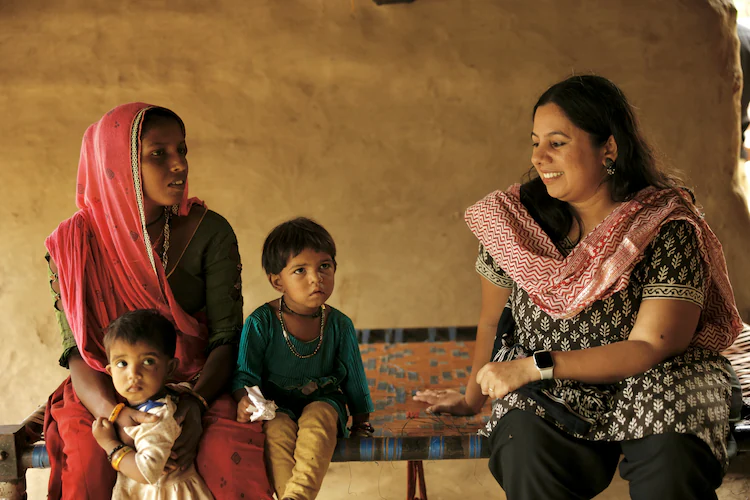Educate Girls has been honoured with the 2025 Ramon Magsaysay Award, making history as the first Indian organization to receive Asia’s most prestigious prize for social impact. Over the years, the NGO has enrolled more than 1.8 million girls in some of India’s most educationally backward districts and touched the lives of nearly 18 million children.

When the award was announced, it recognised more than a single campaign. It celebrated nearly two decades of patient labour—village by village, classroom by classroom, volunteer by volunteer.
Because the story of Educate Girls is not just about numbers. It is about quiet conversations with mothers, late-night visits to remote households, the courage of adolescent girls who dared to dream differently, and the growing conviction that education can be redesigned for lives long left out.
From Rajasthan to the World
For many children in rural India, education has always felt out of reach. Poverty, distance, gender bias, and lack of support often kept girls away from classrooms. In 2007, a small initiative in Rajasthan began with a simple mission: bring these girls into schools and give them a chance at a better life.
That initiative became Educate Girls. Nearly twenty years later, Educate Girls has grown into a movement touching millions of families across India—and now celebrated with the Ramon Magsaysay Award, often called the Nobel Prize of Asia.
Beyond Recognition: A Responsibility
For the team at Educate Girls, the award is both celebration and responsibility. “This award is a huge recognition of the work we have been doing and of the communities we have partnered with,” says CEO Gayatri. “It shines a light on the power of education to transform lives.”
Educate Girls was founded on a simple belief: gender should never decide a child’s future. Its model mobilises communities to identify out-of-school girls, enrol them, and ensure they learn once inside classrooms.
Central to this are Team Balika volunteers—local champions who know families personally, understand their barriers, and patiently convince parents that sending a girl to school is an investment in the entire community. “They are Educate Girls’ biggest strength,” Gayatri says.
The Barriers Girls Face
Still, the obstacles remain daunting. “By adolescence, deep-seated patriarchy and weak foundational learning have already eroded their confidence and academic readiness,” Gayatri explains. Practical burdens—distance to schools, unsafe routes, domestic labour, and early marriage pressures—further limit their chances.
Educate Girls highlights that the stakes are high. India’s vision of Viksit Bharat 2047, Gayatri points out, depends on unlocking the potential of all its people. Each additional year of schooling for a girl can raise her future earnings by 10–20 percent and reduce risks such as early marriage and abuse.
One Family at a Time
Beyond numbers lies the harder work of breaking mindsets. In many homes, girls are still expected to marry young or shoulder household responsibilities. Yet change is visible. Mothers who once opposed schooling for their daughters now encourage them. Fathers who hesitated now see the confidence, skills, and independence education brings.
“When a girl goes to school, she brings change not just for herself, but for her family and future generations,” Gayatri says. “That human transformation is Educate Girls’ biggest victory. It’s about dignity, choice, and opportunity.”
A Human Story at Heart
At its heart, Educate Girls is not a story of statistics, but of small acts of courage. The young girl who no longer spends her days fetching water because she now attends school. The volunteer who walks miles to persuade one reluctant parent. The teacher who stays late to help a struggling student.
These stories, multiplied by millions, are what Educate Girls represents—and what the Ramon Magsaysay Award has recognised.
A Movement of Hope
As Educate Girls celebrates this historic honour, it sees the recognition as fuel to continue. “Every child deserves the chance to write their own story,” Gayatri says softly. “That is what keeps us going—and that is what this award really honours.”
Because at its core, education is hope. It is the bridge between despair and possibility, between poverty and opportunity. And Educate Girls has shown that when communities, families, and girls believe in that hope, it can become a movement strong enough to change a nation.
IIT Dhanbad Scraps 75% Attendance Rule: Big Relief for Students